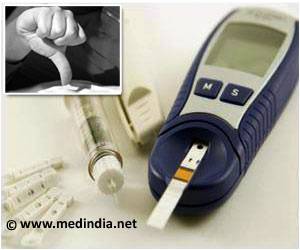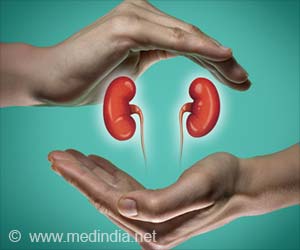Groundbreaking research identifies a gene expression signature that predicts type 1 diabetes progression, paving the way for personalized interventions.
- Gene expression signature identified to predict type 1 diabetes progression
- Personalized interventions can be implemented to slow down the disease
- Improved outcomes and better management with early monitoring and tailored treatment plans
Gene expression signature predicts rate of type 1 diabetes progression.
Go to source). Led by Professor Laura Elo and Professor Riitta Lahesmaa, the study aimed to uncover transcriptional changes associated with disease progression in individuals with recent-onset type 1 diabetes.
Benefits of Predictive Signature for Type 1 Diabetes
The researchers analyzed blood samples collected as part of the global INNODIA partnership, which focuses on combating type 1 diabetes. Through their investigation, they discovered a specific gene expression signature that was strongly associated with rapid disease progression. Professor Elo and Professor Lahesmaa emphasize the potential benefits of such a predictive signature. Firstly, it would enable early intervention in the disease process, potentially slowing down its progression and delaying or preventing the onset of symptoms. Secondly, it would facilitate improved monitoring of disease progression, leading to more personalized treatment plans and better outcomes for patients.Understanding Type 1 Diabetes and Individual Outcomes
Type 1 diabetes is a complex autoimmune disease characterized by the destruction of insulin-producing beta cells in the pancreas. However, the rate of disease progression varies among individuals, and currently, there is no effective way to predict individual outcomes.The involvement of patients in the INNODIA project is crucial. INNODIA, a global partnership consisting of 31 academic institutions, six industrial partners, a small-sized enterprise, and two patient organizations, is dedicated to combating type 1 diabetes. By examining samples and data from newly diagnosed patients and their unaffected first-degree relatives across Europe, the project aims to gain valuable insights into the disease.
INNODIA: Advancing Research with Patient Guidance
Under the framework of the European Union's Innovative Medicines Initiative - Joint Undertaking (IMI-JU), the INNODIA project benefits from dedicated governance. However, what makes INNODIA unique is its close collaboration with patients themselves. The project has a Patient Advisory Committee, comprising individuals living with type 1 diabetes and parents of affected children. This committee provides continuous feedback on the project's concept, and protocol development, and plays a vital role in spreading awareness of the project's goals to the public. Professor Lahesmaa highlights the significance of INNODIA's research in advancing the scientific community's understanding of the relationship between changes in β-cell function, immune profiles, genetic factors, environmental factors, and their roles in the onset of type 1 diabetes.Predicting Progression for Better Outcomes
The discovery of a gene expression signature that can predict the progression of type 1 diabetes marks an important step forward in personalized medicine. With the ability to intervene earlier in the disease process, healthcare professionals may be able to implement strategies to slow down the disease's advancement and mitigate symptoms. Additionally, this breakthrough could lead to enhanced monitoring techniques, enabling tailored treatment plans for individuals and ultimately improving outcomes.Through the collaborative efforts of researchers, patients, and organizations like INNODIA, the fight against type 1 diabetes is gaining momentum. With each discovery, we move closer to unlocking the secrets of this complex disease and offering hope for a brighter future.
Reference:
- Gene expression signature predicts rate of type 1 diabetes progression. - (https://europepmc.org/article/MED/37224769)
















